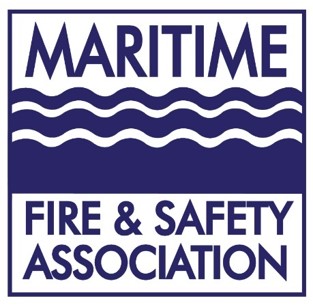What’s Happening: Exercise to Demonstrate Proficiency
The Maritime Fire & Safety Association held a combined equipment deployment drill and tabletop exercise of their spill management team. With 2019 being the first year in their triennial cycle, MFSA took the opportunity to merge a small, initial response tabletop exercise with the on‐water response – testing the ability to manage multiple activities and locations at once and verifying the functionality of their communications system. Vessels and crews were launched from Cathedral Park and demonstrated their ability to track the leading edge of a spill and perform safety assessments including air monitoring.
They also practiced deploying response strategies around a vessel at berth as well as downstream to protect designated areas. Information from the field was relayed to the command post as part of this dual‐purpose exercise.
Oregon Department of Environmental Quality (DEQ) requested that MFSA test a web‐based platform that provides real‐time tracking of the response vessels. In addition to showing the status of the response superimposed over a map, this product also allows tasks to be sent to the vessels from the command post. The combined deployment and command post drill provided a great opportunity to do so.
Participants from MFSA, Merchants Exchange, Clean Rivers Cooperative, NRC Environmental Services, Witt O’Brien’s, US Coast Guard, Oregon DEQ and Washington Department of Ecology worked together to manage the simulated response.
What’s New: State Rulemaking
The Washington State Department of Ecology is in the middle of a rulemaking process for their contingency plan
regulations, as result of 2018 legislation. The lawmakers have directed the department to:
– Establish requirements for review and approval of Spill Management Teams including entities providing
wildlife rehabilitation and recovery services.
– Enhance requirements for readiness for spills of oils that, depending on their chemical properties,
environmental factors (weathering), and method of discharge, may submerge or sink.
– Update drill requirements to reflect legislative direction.
– Update planning standards to align vessel and facility requirements and ensure best achievable protection is
maintained in contingency plans.
– Enhance planning standards for oiled wildlife response.
– Make other edits to address inconsistent or unclear direction in the rule, or other administrative edits.
They are in the final stages of reviewing
their draft of rule changes, including
having it reviewed for cost benefit
analysis. The timeline for public
comment and final adoption is here.
For more information, go to the
Contingency Plan rulemaking page on
their website. For questions on the
MFSA Plan, contact Holly Robinson at
(503) 220‐2099.
